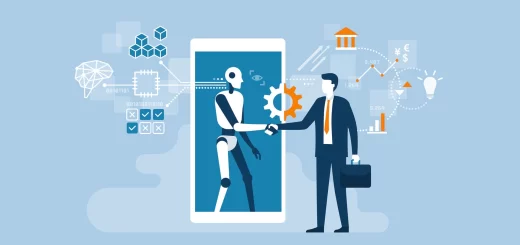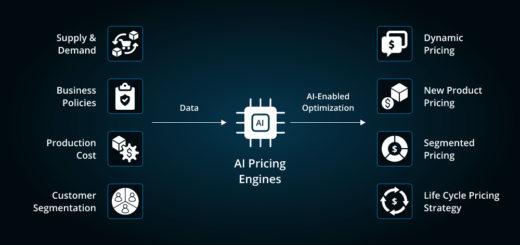AI-Driven Supply Chain Optimization Enhances Global Logistics

Supply chain management has always been a complex, data-heavy process, requiring businesses to balance inventory levels, transportation logistics, supplier relationships, and demand forecasting. However, in September 2024, AI-powered supply chain optimization tools became more advanced than ever, helping companies predict disruptions, reduce inefficiencies, and enhance global trade operations.
By integrating machine learning-driven demand forecasting, AI-enhanced route optimization, and automated warehouse management, businesses were now able to streamline their supply chains, reduce operational costs, and improve sustainability efforts. AI was no longer just assisting in logistics—it was orchestrating entire supply networks, adapting to real-time changes, and mitigating risks before they could impact business operations.
How AI Was Revolutionizing Supply Chain Management
Traditional supply chain management relied on historical data, manual coordination, and reactive problem-solving, often leading to delays, stock shortages, and inefficiencies. AI-powered tools introduced a proactive, real-time approach, enabling companies to:
- Predict supply chain disruptions before they happen – AI-driven predictive analytics analyzed weather conditions, geopolitical risks, and supplier delays, allowing businesses to adjust plans proactively.
- Optimize transportation and delivery routes – AI-powered logistics platforms calculated the most efficient delivery paths in real time, reducing fuel costs and improving delivery speeds.
- Automate warehouse operations – AI-assisted robotics and inventory management systems optimized stock levels, tracked shipments, and reduced human error in fulfillment centers.
These innovations transformed supply chain management from a reactive process into a fully optimized, AI-powered ecosystem.
Industries Rapidly Integrating AI-Powered Logistics Solutions
AI-driven supply chain solutions were being rapidly adopted in industries where efficiency, accuracy, and cost reduction were critical.
1. AI in Retail and E-Commerce Logistics
- AI-powered inventory management systems automatically adjusted stock levels based on real-time consumer demand, preventing overstock and shortages.
- AI-driven delivery tracking provided accurate estimated arrival times and automated customer updates, improving customer experience.
2. AI in Manufacturing and Industrial Supply Chains
- Smart factories integrated AI-based predictive maintenance systems, ensuring that machines operated efficiently without unexpected breakdowns.
- AI-driven procurement systems automatically selected the most cost-effective and reliable suppliers, reducing sourcing risks.
3. AI in Healthcare and Pharmaceutical Supply Chains
- AI-powered logistics helped distribute vaccines and medications more efficiently, ensuring life-saving treatments reached patients faster.
- AI-driven cold chain monitoring ensured temperature-sensitive pharmaceuticals were stored and transported under optimal conditions.
These applications demonstrated that AI was not just optimizing supply chain workflows but actively reshaping the global logistics landscape.
Challenges and Ethical Considerations in AI-Driven Supply Chain Management
Despite its advantages, AI-powered supply chain optimization faced several challenges and ethical concerns that businesses needed to navigate.
1. Data Reliability and Model Accuracy
- AI supply chain models relied on large datasets for predictions, but inaccurate or biased data could lead to costly errors.
- Businesses had to continuously train and validate AI models to ensure reliability and avoid misleading forecasts.
2. Workforce Displacement and Automation Concerns
- AI-driven automation in supply chains reduced the need for human workers in warehousing, logistics planning, and inventory management.
- Companies explored strategies to upskill workers rather than replace them, ensuring a balance between automation and human expertise.
3. Ethical and Environmental Impacts of AI-Optimized Logistics
- AI-driven supply chains optimized for cost-efficiency might lead to unethical labor sourcing or unsustainable material use.
- Businesses needed to integrate AI models that factored in ethical sourcing, environmental sustainability, and fair labor practices.
Navigating these challenges was essential in ensuring AI-powered supply chains remained efficient, ethical, and beneficial to all stakeholders.
What’s Next for AI in Supply Chain Optimization?
With AI continuing to revolutionize supply chain operations, future advancements were expected to include:
- AI-driven autonomous delivery networks – Self-driving trucks and drones, guided by AI logistics models, would ensure faster and more efficient last-mile delivery.
- Decentralized AI supply chain management – Blockchain-integrated AI tools would provide greater transparency in supplier transactions and inventory tracking.
- AI-powered sustainability forecasting – AI models would help businesses predict the environmental impact of their supply chains and optimize carbon reduction strategies.
These innovations positioned AI as a critical component in the future of supply chain efficiency, resilience, and sustainability.
A New Era for AI-Optimized Logistics
The adoption of AI-driven supply chain management tools in September 2024 marked a major shift in how businesses handled logistics, inventory, and global trade operations. Instead of relying on manual oversight and reactive problem-solving, companies were now leveraging AI to anticipate challenges, reduce costs, and improve operational efficiency.
However, as AI became more embedded in supply chain decision-making, ensuring ethical AI use, human oversight, and responsible automation remained crucial priorities. Moving forward, the most successful businesses would be those that embraced AI while maintaining transparency, sustainability, and fair labor practices.




